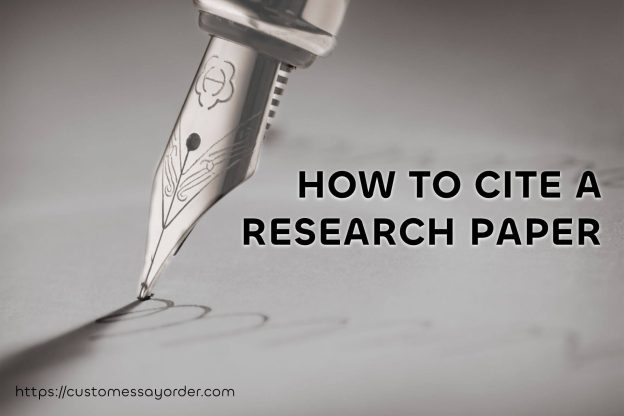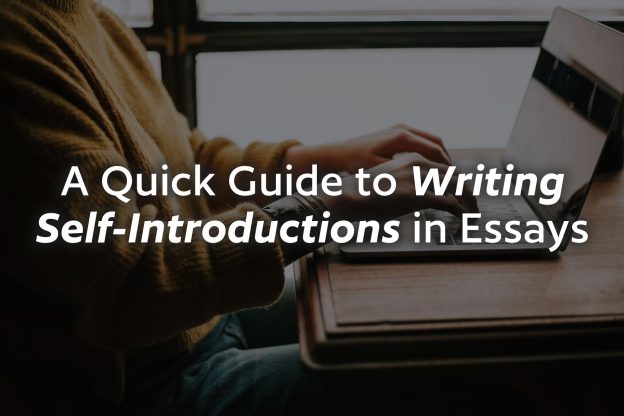Transition words and phrases are used across different formats of writing. These are bridges that introduce coherence and structure to the thoughts and ideas in essays. When used correctly, readers will find the piece enjoyable and smooth as it transitions from the introduction to the main body paragraphs and then to the conclusion.
In this guide, we will cover what transitions are, their importance, how they work, examples, and some tips on how to use them masterfully in your writing. We will also answer some popular questions on the topic at the end. So, let’s get started!
What are Transition Words?
If the name is any indication, we know that transition words help writers move from one thought or idea to another. But that is not it as they also serve the purpose of adding information to the point logically and smoothly. Transition words work for both the surface and core message as they allow the argument to flow through different sections and ideas of the text.
If you are too overwhelmed with writing solid essays, you can connect with our custom essay writing service to get exceptional pieces of writing.
Why are Transition Words Important?
Transition words and phrases are important in writing because they serve as the guiding stars for readers. Without them, you will see that the whole text will feel disjointed as there is no logical connection between different thoughts and ideas in the essay. That’s why instructors insist on using the transition words correctly and sparingly to add value to writing.
Transition Words for Different Parts of the Essay
An essay is a piece of text that has a specific point of opening and closing, covering a single topic through its entirety. The opening covers the hook, context, and thesis statement. The body paragraphs deal with the meat and bones of the essay. As for the conclusion, it logically sums up all the main points before the departing thoughts.
Each section of the essay can benefit from different types of transition words. Let’s see how these go!
Beginning Transition Words for Essays
The introduction requires setting the stage and easing the readers into the text. Transitional words and phrases like “firstly“, “to begin with“, “initially“, and “in the first place” are perfect to begin with.
Transition Words for Essays First Body Paragraph
Since you need to expand your point in the first body paragraph of your essay, transitional words like “for example“, “in addition“, “furthermore“, and “to elaborate” play a solid role in setting the stage for the topic.
Transition Words for Essays Second Body Paragraph
When you have set the stage with the first body paragraph, now you need another type of transition words and phrases to take the narrative forward. Words like “secondly“, “in contrast“, “on the other hand“, or “similarly” are perfect examples.
Transition Words for Essays Third Body Paragraph
This is the last paragraph for the body section of the essay so it should have the tone and style of closing things logically. So, in this case, the best examples of transition words include finally, “lastly“, or “in conclusion to this point” to convey the appropriate point.
Transition Words for Essays Conclusion
Since this is the last and most important section of the essay where you need to tie things up together, you need exceptional transitions. These are the best examples: “in conclusion“, “to sum up“, “overall“, and “finally“.
List of Transition Words for Different Types of Essays
Since we are dealing with transition words and how they add to the text, we have dedicated this section to cover transitional words for different types of essays.
Thinking about getting academic help? Connect with us to get write my essay for me and we will get started right away!
Transition Words for Expository Essays
- For example
- In addition
- Furthermore
- As a result
- To clarify
Transition Words for Analytical Essays
- In contrast
- Therefore
- As shown by
- In comparison
- This suggests
Transition Words for Synthesis Essays
- According to
- Similarly
- On the other hand
- In light of
- As stated by
Transition Words for Cause and Effect Essays
- Because of
- Consequently
- Due to
- Therefore
- As a result
Transition Words for Informative Essays
- Additionally
- For instance
- Specifically
- Furthermore
- In particular
Transition Words for Compare and Contrast Essays
- Similarly
- However
- On the contrary
- In contrast
- Likewise
Transition Words for Persuasive Essays
- Undoubtedly
- For this reason
- Clearly
- In light of
- Therefore
Transition Words According to Purpose
As we have covered in the previous section, transition words make the text coherent by clarifying relationships between words, phrases, and ideas. Based on the purpose they get to serve, there are different types of transition words. In this section, we will shed some light on two major types according to the purpose: additive transition words and spatial transitions.
Additive Transition Words
These transitions are used in writing when you have defined the basic premise of the idea but you want to add more or elaborate further. The most common types of additive transition words include “furthermore“, “in addition“, and “moreover“.
Spatial Transition Words
Derived from the word space, “spatial” transition words give a sense of direction to the idea or literal progression of the text. For instance, you might have seen “above“, “below“, “behind“, and “in front of” phrases in writing to guide readers to the relevant information.
Editing an essay is important. If you can’t get it done quickly, book us with edit my essay for me and our team will be on top of it.
Tips on How to Use Transition Words in Essays
Before we wrap things up nicely in the conclusion, let us go through some practical tips that will make students better practitioners of transitional words and overall better writers.
- Choose Appropriate Transition Words: When you are writing your essay, make sure to choose the right transition words based on the type of writing and other elements. Informal writing can bear casual transitional phrases whereas formal writing requires formal transitions.
- Place Them Strategically: While writing, make sure that the transitional words and phrases are scattered throughout the text strategically. If you stuff them at the beginning of every sentence, they will have a poor effect on the overall quality of your writing.
- Use Variety: Even by a conservative estimate, there are thousands of transitional words that you can use in your writing. So, there is no reason to repeat the same ones over and over again as they will prove detrimental to your essay.
- Check for Coherence: The best way to check whether your transition words are having the intended effect is to check the coherence in your writing. It is best to have a dedicated session during proofreading to improve this aspect.
- Practice: Using transition words to the best effect requires practice as with any other skill. Students should set aside some time to practice sentences with transitional words and phrases and how to connect them meaningfully.
Wrapping Up
To conclude the discussion, transition words are the gems that you place strategically in your writing to add value in both utilitarian and aesthetic senses. These words and phrases connect the thoughts and words for readers with a logical flow and coherence in the text. We have covered everything for transition words in this blog, from definition to importance, types, usage, and examples. Those who want to master this element in writing will find this guide a perfect tutorial.
FAQs
Why are transitional words important in writing?
Transitional words and phrases are important in writing because they can build bridges between different sentences and paragraphs to make the writing piece a single whole. At a deeper level, they also connect ideas and topics coherently.
How can I choose the right transition words in my essays?
There is no hard and fast rule regarding using the right transition words. The type of essay you are writing can help in this regard. That’s why it is best to use “however” for contrast, “therefore” for cause and effect, and “in addition” to add more to the point.
Is it bad to use too many transitional words in my essays?
In essay writing, everything should serve a bigger purpose than just being there, including transition words. When you are writing your essay, make sure to use them naturally to connect ideas, sentences, and paragraphs for a better understanding of the readers.
Should I use different transitional words and phrases for various types of writing?
Experts believe that you should discriminate between different types of writing while using transition words. In formal writing, you should not go for “suddenly” or “then” whereas they are perfect in creative writing.







